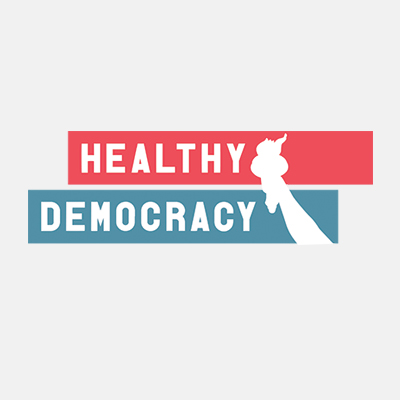Why?
At the core of our programs is the belief that everyday people have a universal right to be involved in decision making. We go to extraordinary lengths to ensure that we’re getting as true a microcosm of a city or state in the room as possible. Typically, our programs include:
- Substantial stipends for panelists, typically at the level of average wages.
- Transportation reimbursements, but also travel arrangements and concierge services.
- Child and eldercare reimbursements.
- Lodging, as needed – even for regional programs, if commuting times are prohibitive.
- Good food. (It’s so important!)
- Materials in large print and clear language.
- Translation and interpretation services.
- One staff member solely dedicated to panelist support.
- Additional one-on-one support for any panelists with special needs.
- Process designs that are flexible and accommodate different learning modes.
Some of the measures we’ll need to take to ensure broad accessibility online are different – we can’t cater a delicious digital lunch, sadly. But we should expect no less than this level of commitment to panelist accessibility in our online programs.
We measure accessibility not only in theoretical terms – who has the opportunity to participate – but also in practical ones – who actually participates. The same should be true online.
- Create something like a “homeroom” for every panelist. Panelists would be randomly selected into a small group on the first day, which they would come back to for a few minutes at the start or end of every session throughout the process. The group wouldn’t have content-related tasks, but would rather take time to get to know each other, to debrief, to talk about the process, to give logistical notes, to perhaps even play a game, and to generally take a breather from the topic at hand. Since we randomly reshuffle all other small groups throughout the process, this could provide some stability, and hopefully a built-in group of friends – for talking shop or having fun.
- Set up social hours. Lots of us are experimenting with different kinds of Zoom shindigs these days. Why not bring a little of this pizazz to a deliberation?
- Capitalize on the new opportunities of an online setting to allow participants to learn more about each other. Home tours are problematic, but introductions could include, say, “an item personal to you from your home.”
- Consider internal social-networking opportunities, offline from the panel but exclusive to panelists. In general, offline (a.k.a., asynchronous) work is something we want to avoid because of highly differential rates of participation – someone who’s working full-time, for instance, is going to have much less chance to participate in this unpaid, unstructured time than someone who’s not. But that doesn’t mean there shouldn’t be social interaction outside of the panel’s official time together. At a Citizens’ Initiative Review, this happens naturally – panelists often go out to dinner or drinks together in the evenings after a day of work. Perhaps we can inspire a bit of that friendly spirit here.
- Work to make work-time more human, even less digital where possible. We know of one example where organizers sent every panelist a sort of self-facilitation package, with a flip-chart, marker, and post-its. And there are other ways for panelists to write, draw, or otherwise be creative in their participation – both using technology and not.
Those are just a few of our brainstorms. We’d love to hear your ideas, too! Here are those Twitter and email links again.
- Transparency of process. We wouldn’t hide the inner workings of our in-room processes, so why would we accept that from a digital platform?
- Cost and replicability. An expensive pay-per-use digital platform is not nearly as broadly replicable as an open-source solution.
- Long-term sustainability. An open-source project can be picked back up by anyone at any time. This means that risk of abandonment is diversified, and no one can squat on outdated code.
- Short-term iterative development. We know from our own projects the potential wisdom of crowds and the value of diverse authorship. Our best chance at creating smart solutions quickly and cheaply is through collaboration.
- Democratic ethos. We’re about democratic innovation, open government, and cooperative management, so open-source seems naturally mission-aligned.


